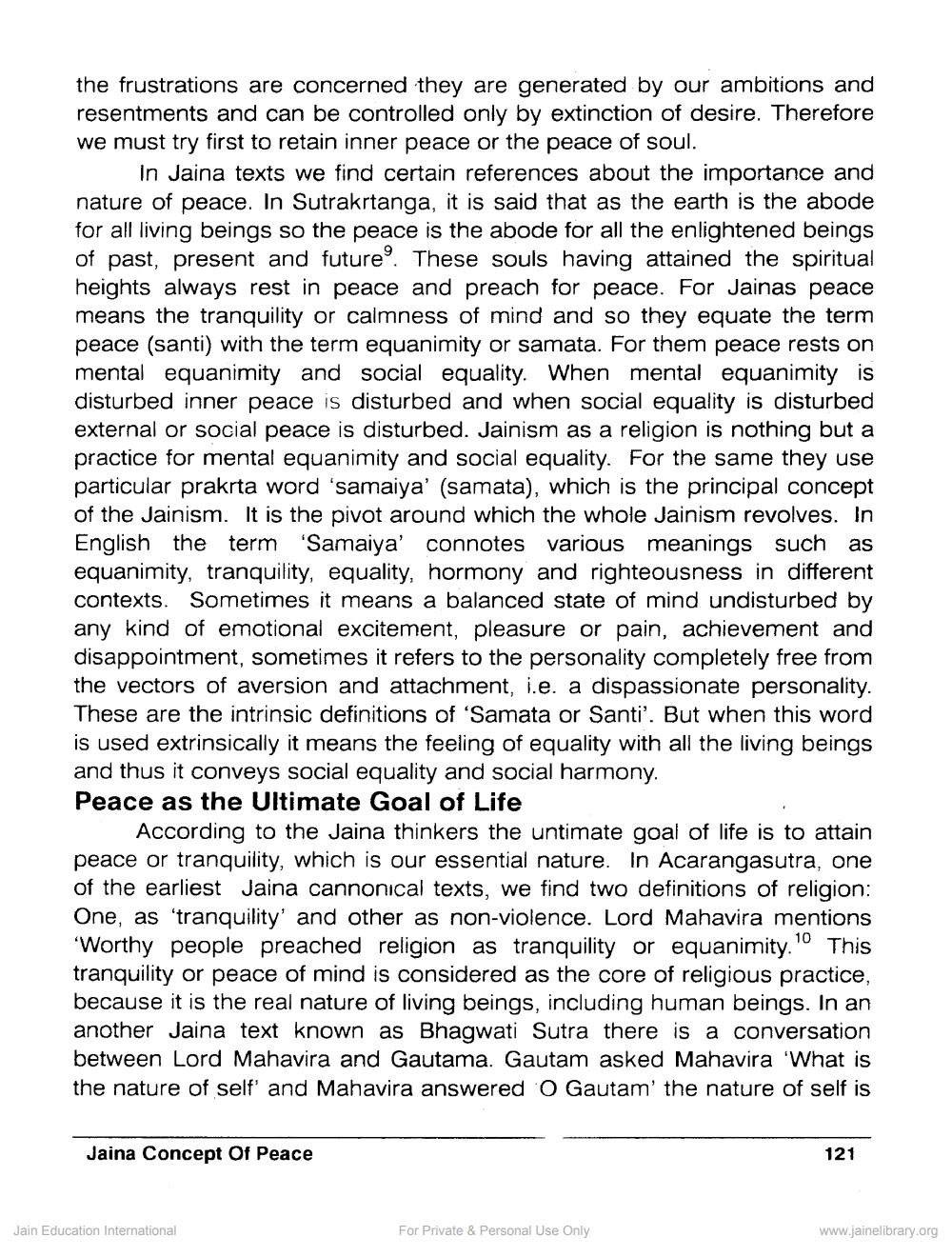Book Title: Jain Concept of Peace Author(s): Sagarmal Jain Publisher: Z_Vijyanandsuri_Swargarohan_Shatabdi_Granth_012023.pdf View full book textPage 6
________________ the frustrations are concerned they are generated by our ambitions and resentments and can be controlled only by extinction of desire. Therefore we must try first to retain inner peace or the peace of soul. in Jaina texts we find certain references about the importance and nature of peace. In Sutrakrtanga, it is said that as the earth is the abode for all living beings so the peace is the abode for all the enlightened beings of past, present and future. These souls having attained the spiritual heights always rest in peace and preach for peace. For Jainas peace means the tranquility or calmness of mind and so they equate the term peace (santi) with the term equanimity or samata. For them peace rests on mental equanimity and social equality. When mental equanimity is disturbed inner peace is disturbed and when social equality is disturbed external or social peace is disturbed. Jainism as a religion is nothing but a practice for mental equanimity and social equality. For the same they use particular prakrta word 'samaiya' (samata), which is the principal concept of the Jainism. It is the pivot around which the whole Jainism revolves. In English the term 'Samaiya' connotes various meanings such as equanimity, tranquility, equality, hormony and righteousness in different contexts. Sometimes it means a balanced state of mind undisturbed by any kind of emotional excitement, pleasure or pain, achievement and disappointment, sometimes it refers to the personality completely free from the vectors of aversion and attachment, i.e. a dispassionate personality. These are the intrinsic definitions of 'Samata or Santi'. But when this word is used extrinsically it means the feeling of equality with all the living beings and thus it conveys social equality and social harmony. Peace as the Ultimate Goal of Life According to the Jaina thinkers the untimate goal of life is to attain ace or tranquility, which is our essential nature. In Acarangasutra, one of the earliest Jaina cannonical texts, we find two definitions of religion: One, as 'tranquility' and other as non-violence. Lord Mahavira mentions 'Worthy people preached religion as tranquility or equanimity. This tranquility or peace of mind is considered as the core of religious practice, because it is the real nature of living beings, including human beings. In an another Jaina text known as Bhagwati Sutra there is a conversation between Lord Mahavira and Gautama. Gautam asked Mahavira 'What is the nature of self' and Mahavira answered O Gautam' the nature of self is Jaina Concept Of Peace 121 Jain Education International For Private & Personal Use Only www.jainelibrary.orgPage Navigation
1 ... 4 5 6 7 8 9 10 11 12 13 14 15 16 17
